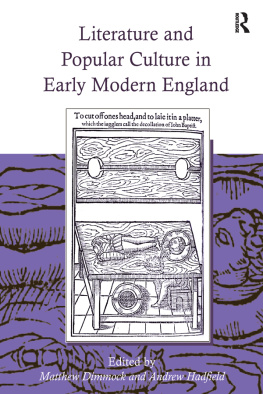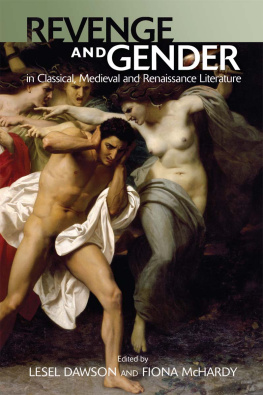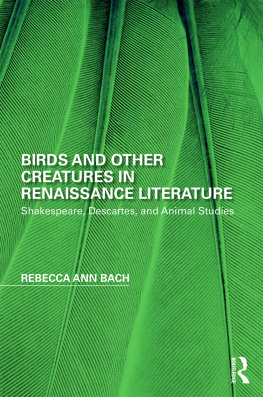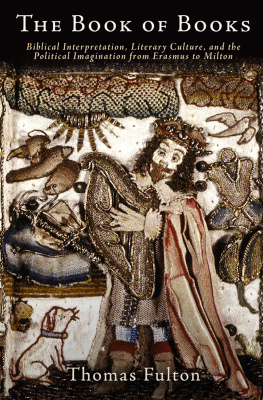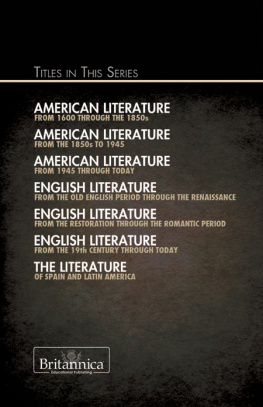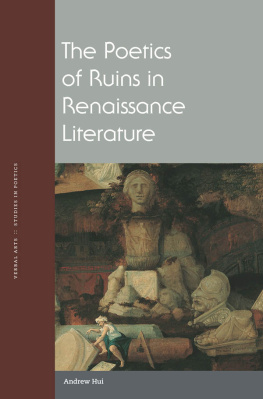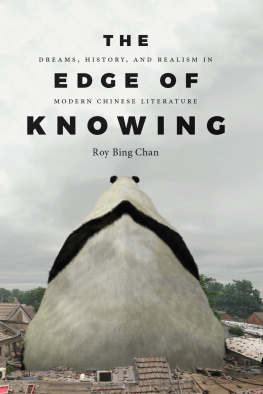Copyright 2017 Fordham University Press
All rights reserved. No part of this publication may be reproduced, stored in a retrieval system, or transmitted in any form or by any meanselectronic, mechanical, photocopy, recording, or any otherexcept for brief quotations in printed reviews, without the prior permission of the publisher.
Fordham University Press has no responsibility for the persistence or accuracy of URLs for external or third-party Internet websites referred to in this publication and does not guarantee that any content on such websites is, or will remain, accurate or appropriate.
Fordham University Press also publishes its books in a variety of electronic formats. Some content that appears in print may not be available in electronic books.
Visit us online at www.fordhampress.com.
Library of Congress Cataloging-in-Publication Data
Names: McEleney, Corey, author.
Title: Futile pleasures : early modern literature and the limits of utility / Corey McEleney.
Description: New York : Fordham University Press, 2017. | Includes bibliographical references and index.
Identifiers: LCCN 2016013983 | ISBN 9780823272655 (hardback) | ISBN 9780823272662 (paper)
Subjects: LCSH: English literatureEarly modern, 15001700History and criticism. | Pleasure in literature. | Senses and sensation in literature. | Literature and societyEnglandHistory16th century. | Literature and societyEnglandHistory17th century. | BISAC: LITERARY CRITICISM / Renaissance. | SOCIAL SCIENCE / Gender Studies.
Classification: LCC PR421 .M29 2017 | DDC 820.9/003dc23
LC record available at https://lccn.loc.gov/2016013983
Printed in the United States of America
19 18 17 5 4 3 2 1
First edition
When I was young, I gave my mind
And plied myself to fruitless poetry,
Which, though it profit the professor naught,
Yet is it passing pleasing to the world.
HIERONIMO in Thomas Kyds The Spanish Tragedy
From now to the end of consciousness, wrote Susan Sontag, we are stuck with the task of defending art.previous historical moments, from which the humanities most gallant champions draw the energy that fuels their arguments.
Hence, Gregory Jusdanis, in his 2010 book Fiction Agonistes: In Defense of Literature, channels the spirit of a real knight, the Renaissance courtier and poet Sir Philip Sidney, in his rousing defense of the value of literature and the arts. Commenting that we humanists once believed that culture made us into better human beings, that we could find solutions to our problems in literature, or that art provided us with solace for the imperfections and injustices of life, Jusdanis attempts to revitalize such arguments for our current moment, which has fallen away, he claims, from these beliefs. However inadvertently, the typo here implies that the contrast Jusdanis attempts to draw cannot be entirely sustained. The aesthetic philosophy he poses in contradistinction to early humanist defenses of literature has long been critiqued by generations of historicist and materialist critics invested in establishing the (social, political, ethical) efficacy of literature. Indeed, modern humanists instead seem bound, as if by contract, to repeat the humanist ideals that Jusdanis laments we have cast aside.
Such rehearsals of humanist commonplaces are not confined to the academy; popular journalistic accounts often succumb to the same compulsion. After the New York Times columnist Frank Bruni published an op-ed piece singing the praises of the liberal arts education he received from a particularly memorable Shakespeare professor with whom he studied in college,almost exclusively to developing STEM (science, technology, engineering, and mathematics) programs, and when even academic publishers have started seeing literary studies as unmarketable and unpublishablewhen, in sum, a B.A. in English seems to be, as the opening number to the musical Avenue Q would have it, a useless degreeit is hardly surprising that Bruni would welcome and broadcast the testimony for the value of literary study handed to him by such a major political player.
As Brunis invocation of Shakespeare and Jusdaniss of Sidney suggest, current debates over the worth and significance of the humanities invite us to return to the literature of the English Renaissance, though not, I would suggest, in the straightforwardly nostalgic way that defenses such as theirs seem to encourage us to undertake. In offering the unassailable value of Renaissance literature as something of a useful solution to, or savior from, the contemporary crisis in and of the humanities, both academic and journalistic accounts overlook the degree to which that crisis is itself an extension of debates that rifted the Renaissance, in ways that prevent either the periods literature or its defenses of literature from constituting a simple panacea for the problems that currently plague us. As tempting as it is to celebrate the Renaissance as a paradise lost, a cultural moment when literature enjoyed enormous prestige before the fall into the deplorable current state of affairs, this study begins with the observation that early modern writers were no less anxious and ambivalent about the value of literature than their contemporary counterparts, however much they tried to mask that ambivalence with the commonplaces so routinely rehearsed today.
Precisely because it squares so well with our own assumptions about the meaning and virtue of our work, the Renaissance humanist idea that the pleasure of literature can be sublimated as socially and ethically useful or productivethat its potential negativity, in other words, can be dialectically recuperated or redeemed as a positive goodhas served as the primary standard by which the value of literary writing has been measured. Because the intellectual and ideological roots of the American academy, like the United States itself, can be traced back in part to the Protestant or Puritan work ethic forged in the context of early modern English culture, it is no wonder that contemporary Anglo-American critics operate according to an ends-oriented understanding of the humanities.utility as a metric for determining value. If automatically defending the utility of the literary always ends up being, ironically enough, an exercise in futility, then it may be more helpful to critique the rhetorical and institutional forces that activate such defense mechanisms, and the charges to which they respond, in the first place. In reexamining the struggles that early modern writers had with these issues, we may be in a better position to reevaluate the current (read: perpetual) crisis in the liberal arts and so to imagine alternatives to the redemptive logic that marks present as well as past justifications for the value of literature.
In sixteenth- and seventeenth-century England, as Jusdanis notes, poets such as Sidney insistently justified the profit and value of their work on the basis of the notionborrowed from antiquity, and in particular from Horacethat the purpose of poetry is to please and instruct, that it must be both delightful and useful. However, many of the same writers soon came to realize that this notion might be nothing more than wishful thinking, that the relationship between poetic pleasure and poetic utility might be far more complex, even antagonistic, than they had hoped. Concerns over what happens when the delighting and the teaching functions of poetry come into conflict with each other, or when the delighting overtakes the teaching, or when the delighting teaches us how to be bad, were expressed most explicitly by religious authorities intent on curbing what they saw as the deleterious effects of poetry and the theater. Calvinist killjoys were not, however, the only voices that articulated alarm about the potential dangers of poetic delight. Embedded, though not always explicit, in the eras literature itself are similar worries about the volatility of poetic pleasure.


